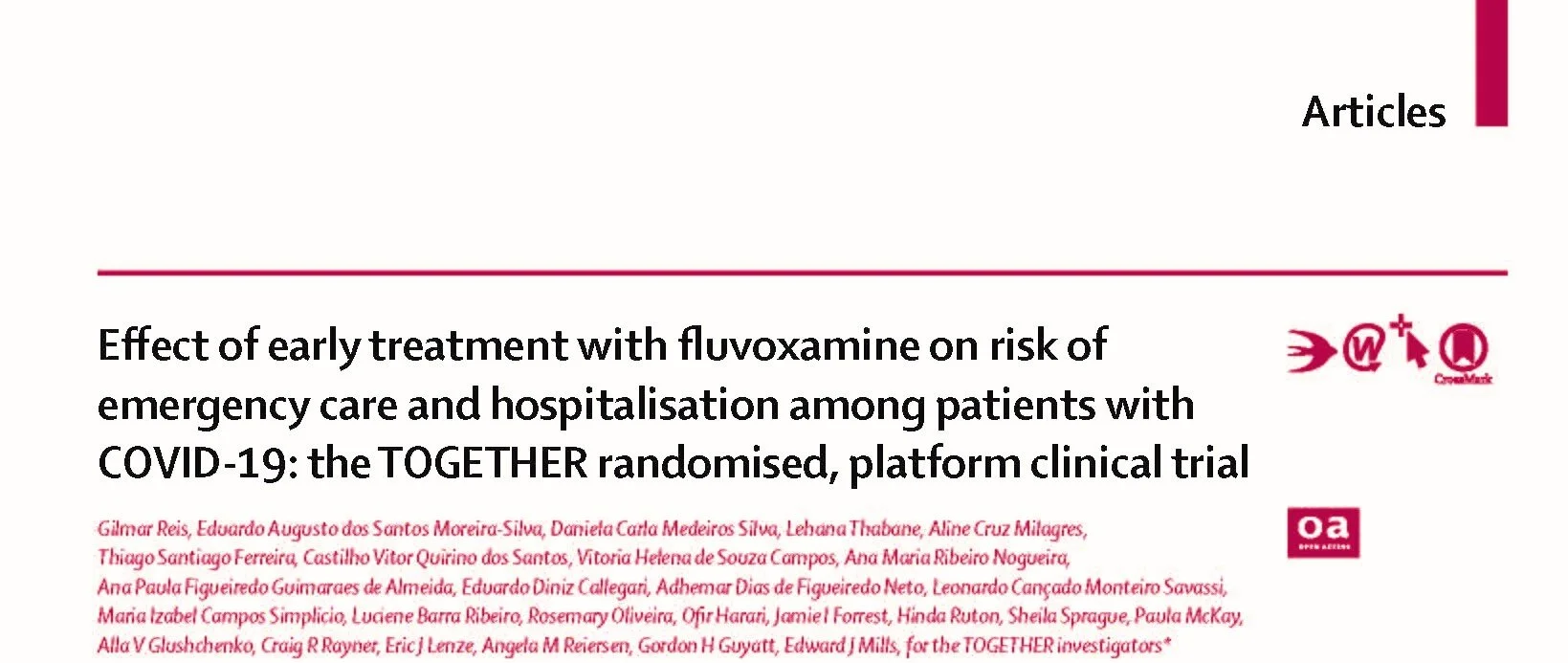Update! New Data Supports the Use of Fluvoxamine in Reducing Severity of Covid-19 Infection.
I have been particularly skeptical of magic pill remedies for Covid-19 throughout the pandemic. However, as a researcher, I am always open to scientific exploration of potential therapeutics when done safely, equitably and using good clinical practice under the guidance of an Institutional Review Board to ensure human subjects protection and data integrity.
Early in the pandemic, I was interested in a small placebo controlled trial study showing a correlation between people taking fluvoxamine (an antidepressant) and decreased need for hospitalization in the outpatient setting (that blog post from November 2020 can be found here https://www.usfemergencymedicine.org/blog/common-class-of-antidepressants-may-help-withcovid). However, a year ago, I noted this was promising but still needed a larger, well-designed, study to change clinical practice (start prescribing fluvoxamine). To help facilitate that, I was selected as the TGH/USF site Principal Investigator for the NIH sponsored ACTIV-6 study which will begin in later January 2022 and does include a fluvoxamine arm. https://clinicaltrials.gov/ct2/show/NCT04885530
In the meantime though, Lancet Global Health has published the results of an exciting trial that can lead to change in practice right now (Reis et al., 2022). https://www.thelancet.com/journals/langlo/article/PIIS2214-109X(21)00448-4/fulltext
This clinical trial took place in Brazil, a country with high prevalence of Covid, across 11 sites. The trial was stopped early by the independent monitoring group because of a signal for superiority in the fluvoxamine arm. This is a pretty big deal in clinical research – the study team didn’t need to enroll the full sample size of patients to reach their endpoints demonstrating a positive effect of fluvoxamine compared to placebo.
In total, 741 patients were randomized to the fluvoxamine arm and 756 patients were randomized to the placebo arm with average age of 50 years old. All enrolled patients had a at least one risk factor for progression of Covid to severe disease (cardiac disease, uncontrolled hypertension, COPD, Asthma, chronic kidney disease, rheumatoid, chronic neurological disorder, diabetes, autoimmune disease). 50% of the patients were obese with BMI >= 30 kg/m2. About 40% of the patients started fluvoxamine within 3 days of symptom onset and 30% started within 1 week with no difference in outcomes across time period of initiation.
The combined outcome was whether a patient required over 6 hour stay in the emergency department or hospital admission. The patients enrolled in the fluvoxamine arm had a 32% lower chance of being admitted or kept in the ED for more than 6 hours (32% relative risk reduction, RR 0.68, 95% CI 0.52-0.88). There was an absolute risk reduction (ARR) of 5% with 79 patients in the fluvoxamine arm (11%) were kept in ED or hospitalized compared to 116 in the placebo arm (16%). This leads to a number needed to treat of 20. In other words, for every 20 patients discharged on fluvoxamine, one hospitalization will be prevented. This is just for fluvoxamine and it is not known if there is synergistic risk reduction when combining use of fluvoxamine with other potential treatments in the outpatient setting like monoclonal antibody infusions, remdesivir, or oral protease inhibitors. One of the key issues with potential treatments and repurposed drugs (e.g. hydroxychloroquine and ivermectin) has been the large number of side effects/adverse events in the treatment arms. However, in this study, there was no difference in adverse events between the fluvoxamine group and the placebo arm. Meaning, not only does fluvoxamine appear effective in preventing progression to severe Covid, the drug is also relatively safe.
Take Home Message: For now, it is reasonable to consider outpatient usage of fluvoxamine.
The ACTIV-6 trial (which will likely be an even larger sample size, funded by NIH and in the United States) will probably lead to the ultimate arbiter of fluvoxamine use in Covid (and eventually likely some other work to see if there is value-add on top of the oral protease inhibitors coming to market specifically designed for this condition). For now though, it is reasonable to consider outpatient usage of fluvoxamine. Suggested dosing: 100 mg BID x 10 days.
About the author
Jason Wilson, MD is a core faculty member for USF EM and, as research director, coordinates multiple Covid research studies across TGH/USF.
Post edited by Enola Okonkwo, MD.


